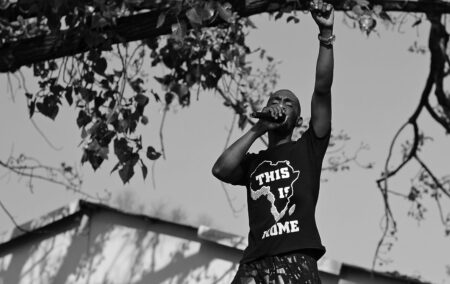Last week’s demonstration against foreign nationals outside the Nigerian embassy in Tshwane is an example of wide-scale discrimination against immigrants, IRR analysts say.
The march, attended by about 50 people, included representatives of organisations such as Action for Change, Voice it in Action, Only One SA and the Khoisan Revolution Party.
Many accused Nigerians and other foreigners of causing a spike in crime levels in some communities in South Africa, and advocated for the deportation of undocumented migrants.
Analysts say that while the protest was attended by only a small group, it comes amid continuing tension within communities between South Africans and immigrants, and many instances of foreigners being attacked and their businesses burnt down or looted.
A study by Xenowatch (a platform that tracks all forms of xenophobic threats and attacks) found that in 2018, 309 foreign nationals were killed in South Africa, 901 were assaulted, 257 received threats to their property, and 2 193 shops were looted.
A Human Sciences Research Council (HSRC) study highlighted a 2013 opinion poll in which more than three fifths of the adult population said they would favour closing South Africa’s borders to immigration. Many said they would favour restrictive immigration policies, and were against giving foreigners the same rights as citizens.
Human Rights Watch (HRW) said in a report that foreigners were often scapegoated for economic insecurity and a lack of job opportunities. HRW also noted that law enforcement officials were often complicit in discrimination against immigrants; foreign-owned businesses were disproportionately targeted by crackdowns on counterfeit goods, and migrants were arbitrarily detained for allegedly lacking the right documents.
IRR analysts point out that, contrary to popular belief, immigrants are good for South Africa’s economy, as they often create employment and additional income opportunities for locals. They warn, however, that in the absence of political leaders being willing to inform South Africans of the positive role played by immigrants, the country would likely remain a deeply xenophobic country.
[Picture: Guinivere Pedro, https://commons.wikimedia.org/w/index.php?curid=54017676]

